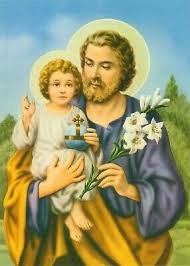 Traditionally the third Sunday of Advent is known as Gaudete Sunday – the Latin word for “Rejoice” – the first word of the Entrance antiphon. We mark this Sunday on the Advent wreath by lighting a pink candle instead of a purple one.
Traditionally the third Sunday of Advent is known as Gaudete Sunday – the Latin word for “Rejoice” – the first word of the Entrance antiphon. We mark this Sunday on the Advent wreath by lighting a pink candle instead of a purple one.
There is an African proverb that reads: “If the beat of the drum changes, so changes the dance of the feet.” This is what we are called to do during Advent: listen to the beat of “Jesus’ drum” and set our pace to the rhythm of the Master drummer. “Rejoice in the Lord always. I shall say it again: rejoice! … The Lord is near.”
Yes, the Lord IS near and we should make haste to prepare for Him, leveling the hills in our lives that create barriers, making straight the roads in our lives rather than maneuvering others around for our advantage, Filling in the valleys, so that it will be easier for others to cross over to us and thereby to a spirit of joy in the Child who brightens all of our days. Instead of asking what others can do for me, we should make haste to prepare for Our Lord and ask Him, “Jesus, Master, tell me what I should do?” How do we become the joyful people called for in our Scriptural readings? Re-joice: have joy again – be joyful … full of joy! Not simply “happy” but “joyful.”
Is there a difference between happiness and joy? What’s the difference? By definition they are both emotions but the one (joy) is an interior contentment, an inner peace; the other is initiated from external events (happenings, happenstance). The former is long-lasting, the latter can be momentary. If circumstances are favorable, you are happy; if not, you’re unhappy. Christian joy, however, is directly related to God and is the firm confidence that all is well, regardless of your circumstances. Joy may show less in outward expression while happiness can unexpectedly bubble up from within and bring a smile to your lips. Joy is related to happiness but joy, because it does not depend on external stimuli, gets us out of ourselves and in contact with others. Some find when they give up the self-centered search for happiness, they actually find joy. It may even be intermingled with suffering and pain but there is an overwhelming sense of peace and joy.
So, how can we bring joy into our lives if we’re not in the mood for it? Can you have joy on demand?” Too often we may take for granted the issue of joy. We find people who are just naturally joyous, who have a kind of laid-back attitude – it’s just good to be in their presence. Then there are others who always bring us down. Could they develop joy?
I ask you: is joy genetic or acquired? If joy can be acquired, then a very strong argument can be made that once you’ve lost a reason to be happy, or you’ve suffered grief, there’s no way of reconnecting. However, if joy is a natural state of feeling, a certain sense of belonging, a feeling within that you are important and you have a value, then it’s just a question of reclaiming that right, not creating something new. You can re-joice – being joyful AGAIN is possible.
Joy is God’s gift to every believer. It is one of the fruits of the Holy Spirit. Meditation, lectio with the Word of God increases joy. It is a gift – it must be handled with care or it becomes torn around the edges. Like any treasured gift it cannot be put in cold storage, stashed on a back shelf, put under the hankies in a drawer or stuffed beneath old mail in your mailbox. Like a snow globe that is never turned over, joy that has lain inert can be shaken to life with the tiniest twist of a wrist … or crinkled smile.
Rejoice, again I say: rejoice!
~by Sister Roberta Bailey, OSB
Rejoice! The Lord is coming, bounding over the hills to come to Earth this Christmas. Again, I say, Rejoice!
First Reading: Zephaniah 3:14-18a Second Reading: Philippians 4:4-6
Gospel Reading: Luke 3:10-18
Continue Reading







